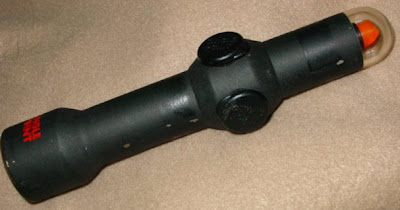What's wrong with universal background checks?
"Do you support background checks for people who buy guns at gun shows, or over the Internet?" Why sure. Sounds pretty good, in fact. Sounds entirely reasonable, when asked like that.
But the devil is in the details. A number of states already implement that requirement through their state gun laws. It is instructive to examine the result.
A requirement for private sale background checks creates an unenforceable law. Private, after all, is not the same as public. Those with criminal intent to buy and sell will simply do it on the quiet. The criminal underground market in guns is untouched by requiring background checks.
Law abiding citizens comply with the requirements simply out of their reflex to obey the law. If they sell a used car to a neighbor there is paperwork; why not a used gun?
In states without this requirement, there is still a moral burden, and practical problems, in selling a gun to just anybody. You would be morally culpable on some level if you sold a gun to someone who did a bad thing with it later. Further, it is already a (federal) crime to transfer a gun privately to someone you have reason to know is ineligible to own it. You know who is not eligible because of that questionnaire affidavit you filled out when you bought the gun. (All new guns and most used ones are acquired via Form 4473 and a background check. Gun owners know the drill: Not a crook, a crazy or a wife beater, illegal alien, druggie, dishonorably discharged soldier, etc...) Finally, if you bought the gun in a shop, it is traceable to you, and even if you are not legally to blame there will be questions asked if anything goes wrong. Who needs that hassle? Gun owners, like anyone else, are eager to avoid unnecessary entanglements in police investigations.
Because of the above problems, moral and legal, lots of people refuse to do private transfers, period, or only give or sell or swap guns to family members or longtime friends--people they know aren't likely to go on a rampage.
The two situations, states with universal background checks, and states without, are largely equivalent. People interested in doing the right thing do it, whether universal background checks are required or not. Notice that in both cases compliance is in a sense voluntary: People wanting to do the wrong thing can do it easily enough. Who is to know? That gets us to the big problem with universal background checks that are truly universal.
To make sure that every gun recipient is background checked every time, you would need something like omniscience. The closest the government can come to that is to institute a massive bureaucracy to whom all gun owners are known, and with whom all guns listed, 'from whom no secrets are hid.' That is something gun owners oppose very much, because it has been very onerous upon them wherever it has been tried, and illegal guns still slip through the cracks to wind up in criminal hands.
The Manchin-Toomey proposal, recently defeated in the Senate, included language forbidding the DOJ from creating such a registry. Opponents were not convinced. The language against creating a registry could be nullified by later legislation, made inconsequential by a presidential signing statement, or even sidestepped by building the registry under the aegis of another department, not the DOJ--how about DHS, or even Defense? DHS could get oversight because these days, "homeland security" is an umbrella that covers nearly anything the government cares to push under it. DOD is more of a stretch, but you could say that gun ownership has something to do with the "general militia" of armed citizens, and relates to contingency planning for military preparedness, say if the country were invaded, thus it's a military matter.
If such objections seem the expression of overwrought fears, bear in mind that the pro-gun people have been burned before by legal finagles. Because the Manchin-Toomey approach would do nothing very useful as offered, and to become useful it would require a massive registry, we opposed it. The legislation potentially set the stage for the government to revisit the matter and have an "aha!" moment, suddenly realizing (having known it all along) that the law is a paper tiger unless the government has some way of knowing who has what gun. Then they would need to add to the system to make up for the former "oversight" of omitting universal registration requirements.
As I say, the devil is in the details. I think all private gun transfers should come with some assurance that the recipient is an okay Joe, or Josephine. But we have that already in the states that have their own universal background check laws. We also have it to a degree, perhaps a similar degree, in states that do not, because of the seller's moral and legal culpability if the recipient turns out to be a rotter. That is, we have it to the degree that honest people comply with either system. Criminals, on the other hand, shrug at both. I think it would be useful to compare the results of both approaches before we, as a nation, revisit the question of background checks.


Comments
Post a Comment